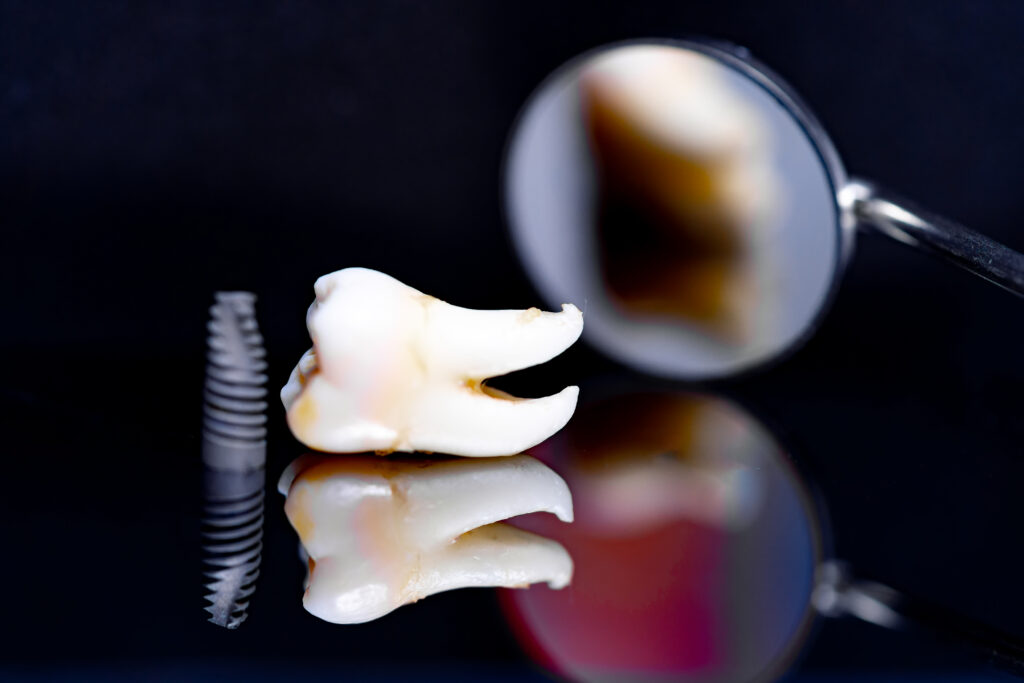Tooth Extraction in Glendale, AZ
Tooth Extractions at Smile Science Dental Spa
Got a problem tooth that is infected or broken? Say goodbye to tooth pain with Smile Science’s expert tooth extraction services! Our experienced dental team uses the latest techniques to make the process as smooth and painless as possible. Our expert dental team, led by Dr. Dawson and Dr. Turke, can not only remove a problem tooth, they can replace it too. So don’t wait for things to get worse. Come see us for a healthier smile today!
Why Choose Smile Science?
- Experienced dental team
- No judgment, ever.
- The highest standards
- Full-service from extraction to replacement
- Cutting-edge technology
- Sedation available

See What Our Patients Are saying
Frequently Asked Questions
Does it hurt to have a tooth pulled?
We perform all of our tooth extractions using local anesthesia. This means you shouldn't feel any pain during the procedure. If you are very anxious, or have dental anxiety, then we can also provide a sedative to help you stay nice and calm.
What is the recovery time after tooth extraction?
Though variable, the time to recover from a tooth extraction usually takes a few days. If we anticipate a longer recovery time, we will typically warn you in advance and provide necessary medications to lessen the pain. Minor pain and swelling after a tooth extraction is common. In the majority of cases, over-the-counter painkillers are sufficient to manage any discomfort. We may sometimes prescribe antibiotics if you have an infection that warrants them. After your extraction is complete, it is important that you follow our instructions to avoid painful complications such as dry socket.
How long does a tooth extraction take?
This is highly variable and depends on many factors. It could take only a few seconds in some cases, or thirty minutes in others. The time it takes to extract a tooth depends on the condition and location of the tooth, as well as the quality of the bone surrounding it. We are very efficient exodontists, and in most cases the procedure goes quickly. In any case, we will take great care of you and keep you comfortable throughout the entire procedure.
What are the risks and complications?
As with any dental procedure, tooth extractions carry some risks. At Smile Science, we take every precaution to minimize risks and complications. In general, possible complications include infection, bleeding that doesn't stop, dry socket, delayed healing, adverse reactions to anesthesia, and damage to surrounding structures such as blood vessels, nerves, teeth, bone, or sinuses. We use the latest techniques and technology to prevent complications. In many cases, underlying health conditions such as diabetes, smoking, obesity, or lifestyle choices such as tobacco use can significantly increase the risk of complications following tooth extraction.
How do I care for my mouth after a tooth extraction?
What remains after a tooth extraction is either a socket, or a bone graft. In either case, you should avoid disturbing the area. This means avoiding tooth brushing, or eating foods that could get caught in the socket and cause infection or dry socket. We generally advise patients eat soft foods for several days until the extraction site has a chance to heal over.
When can I eat after a tooth extraction?
Initially, the extraction site will bleed for a period of time. We recommend biting on gauze tightly until the bleeding stops. In most cases, you will need to change the gauze out at least once. Only when the bleeding has mostly subsided should you eat anything. For the first several days we advise that you consume soft foods to avoid disturbing the extraction site.
Can I drive myself home afterward?
Unless you had sedation, you can absolutely drive yourself home. In fact, you can go about your normal routines as soon as you leave the office. However, you should follow our post-operative instructions to avoid complications.
How can I replace my missing tooth?
There is typically more than one way to replace a missing tooth. One option is a fixed replacement, such as a bridge or a dental implant. The other option could be something removable like a partial denture. Your treatment needs are unique to you, so it really depends on your circumstances. However, in general, dental implants are the best clinical option. They have an extremely high success rate of 95% at 15 years. This makes dental implants one of the longest-lasting restorations in all of dentistry. Best of all, you care for dental implants the same way you care for the rest of your teeth!
